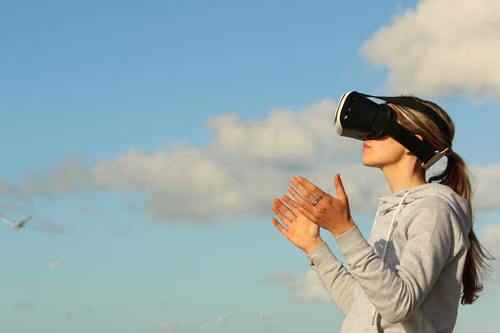Phobia Guru Criticises NHS for VR Approach to Phobias as a Waste of Tax Payers’ Money
Phobia expert says VR is not a substitute for real experiences and proven psychological techniques
Phobias can already be cured in a single 90 minute therapy session
Group Therapy with Experts would increase effectiveness and be more cost effective than VR
A recent study by Oxford academics has found that using VR to treat phobias was effective in almost seven out of ten cases. While this is the first trial for treating phobias using VR, some are already calling for the technology to be widely adopted into traditional therapies to treat phobias.
However, VR is still a new technology, with a host of side effects which may prove troubling, especially to patients already struggling with the stress of facing their fears. Loss of spatial awareness could prove disconcerting to those dealing with acrophobia (fear of heights.) Dizziness and disorientation are also common side effect, born out of sensory conflict between what is seen, and what is felt in the body. When this is caused by VR it can lead to ‘cybersickness’, a type of nausea, which may end up reinforcing the psychic triggers which caused the phobia in the first place.
Harley Street Hypnotherapist and Phobia Guru Adam Cox said:
“Virtual reality uses the same traditional therapeutic process of desensitisation. Phobics often rank their fear on a scale of 1-10 with severe phobics ranking their fear as 8, 9 or 10 on the scale. Desensitisation uses incremental challenges getting progressively more scary so the patient can successfully handle the fear, building confidence and resilience. This can be done in real life (in vivo) or in the imagination (in vitro). Virtual reality simply takes this approach to replace the imagination so that the phobic can experience doing the thing they fear”.
“While I support any technique or tool that can help people break through a fear, in my experience the immersive or desensitisation part should follow proven psychological approaches to increase resources such as courage or fascination while also breaking the association between the stimulus and the emotional response”.
Another concern raised is the cost of implementation. While VR kits are becoming cheaper, the cost of sourcing thousands of headsets, creating therapy programs, and training staff in using them would put strain on an already beleaguered NHS. Compare this to the cost of a single phobia session with Adam (£295), where the focus is entirely on one patient, their specific situation, and their personal history with the phobic object. Complicated cases may take longer, with extended sessions across multiple weeks, opposed to a one-size-fits-all computer program.
Adam regularly hosts phobia workshops where people with severe animal phobias see their phobia disappear in just a few hours. The final part of the arachnophobia workshop sees the attendees holding a large tarantula proving their fear has gone.
Adam knows first-hand that phobias can be cured in a single session, while the VR trial took six session to yield results. This would suggest it may not be necessary for even the most severe phobics. Adam is recommending that the NHS consider more group workshops that involve real experiences rather than using VR. Just because someone can cross a wobbly bridge in VR doesn’t mean they will be able to climb a ladder in real life.
"You must do the thing that you fear, to prove that your phobia is gone for good."
You can take a free phobia test to see which course of treatment is best for you.
ENDS
For additional comment and for imagery to accompany this release please contact Jack at jack@kincomms.com, or you can call on 020 3958 7085
Journalists can get in touch for a free session
Notes to editors:
Original story here: https://www.independent.co.uk/news/health/virtual-reality-ph...
Adam Cox is a fully insured clinical hypnotherapist that qualified with the LCCH, is a member of the BSCH (British Society of Clinical Hypnotherapists) and listed on the GHR (General Hypnotherapist Register) http://www.hypnotherapy-directory.org.uk/hypnotherapists/ada...
Adam has worked with celebrities and CEO’s and is often featured in the UK media.
Visit Phobia Guru http://www.phobiaguru.com/ for more information.
Adam Cox recently helped arachnophobes conquer their fear http://creaturecourage.com/ at Chessington World of Adventures, with a 100% success rate. Celebrities including James Jordan from BBC One’s Strictly Come Dancing and Amber Davies, from ITV2’s Love Island, were able to overcome their fears during the four-hour session.
Filming from the most recent immersion workshop can be viewed here https://www.youtube.com/watch?v=dNQZ1ufPDCw
For those looking to experience the immersion therapy technique for themselves, visit Phobia Guru http://www.phobiaguru.com/
This press release was distributed by ResponseSource Press Release Wire on behalf of Kin Communications2 in the following categories: Health, Consumer Technology, Medical & Pharmaceutical, for more information visit https://pressreleasewire.responsesource.com/about.
